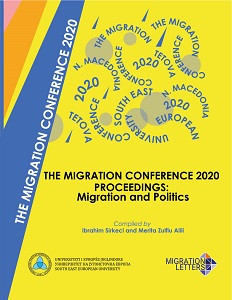Invisible Beneficiaries Of The Single Permit Directive: Highly Skilled Female Family Migrants In Belgium
Invisible Beneficiaries Of The Single Permit Directive: Highly Skilled Female Family Migrants In Belgium
Author(s): Damini Purkayastha, Tuba Bircan
Subject(s): Gender Studies, Labor relations, Family and social welfare, Migration Studies, Asylum, Refugees, Migration as Policy-fields
Published by: Transnational Press London
Keywords: Migrants; Belgium; immigrants;
Summary/Abstract: Family reunification is one of the main channels for managed migration to the EU today and as per Eurostat data, accounts for almost one-third of all arrivals of Third Country Nationals (EMN, 2016). Family reunification refers to the process through which a foreign citizen moves to a country in order to live with a spouse/partner. There are two procedures for this: 1. A long-stay visa issued under family reunification (2) a first residence permit issued for family reasons. 43% of total long-stay visas are for family reunification – 32% for family reunification with TCN and 11% for reunification with a Belgian or EU citizen. In 2018 and 2019, over 70% of adult family migrants in Belgium were women, adding to long-held assumptions of economic migrants as male, and family migrants as dependents. One of the major obstacles for family migrants who come to Belgium with their non-EU citizen partners is their lack of access to the labour market. Despite the high number of family migrants, it is difficult to conduct an in-depth analyses of their migration trajectories and labour market participation as neither Eurostat nor national statistics include high quality data on the education level of immigrants in Belgium. There is almost no information about the academic background of family migrants in Belgium, other than those who enter the social security system (Crossroads Bank for Social Security-CBSS). Belgian residents appear in the CBSS database if they ever work or get welfare benefits.
Book: The Migration Conference 2020 Proceedings: Migration and Politics
- Page Range: 153-156
- Page Count: 4
- Publication Year: 2020
- Language: English
- Content File-PDF

